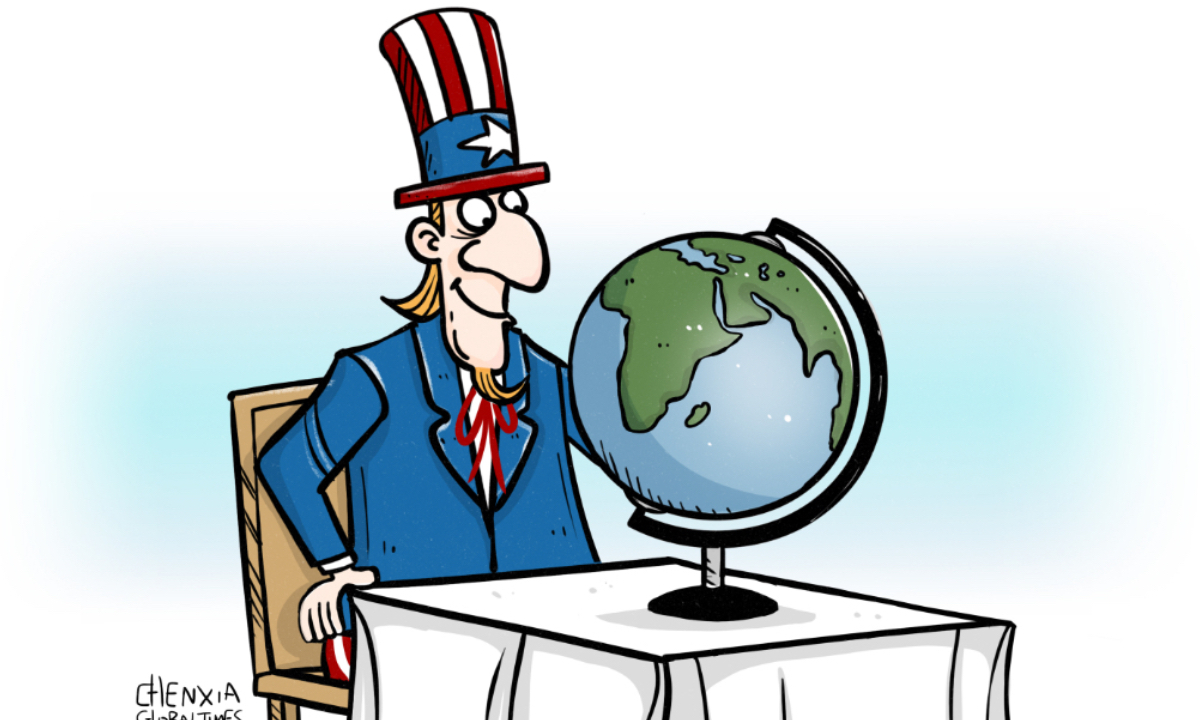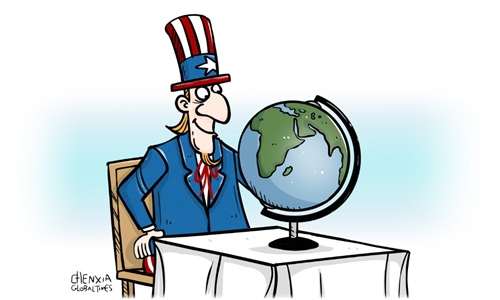
Illustration: Chen Xia/GT
As the US-Africa Leaders Summit approaches, Washington is once again paying lip service to Africa.
US President Joe Biden will announce during the upcoming summit that his country supports the admission of the African Union (AU) to the G20 group as a permanent member, White House adviser Judd Devermont said on Friday.
"It's past time Africa has permanent seats at the table in international organizations and initiatives," the US official noted, adding that Biden's decision builds on Washington's strategy for Sub-Saharan Africa.
Such an announcement is undoubtedly the White House trying to show a gesture of goodwill to Africa. Regardless, Washington cannot conceal its strategic intention of using the support as leverage to engage in fiercer global competition with China in Africa.
China has expressed its support to include the AU in the G20, a mechanism proven effective in global governance, because it is willing to increase Africa's influence in the international arena. Beijing is also willing to work with more African countries to push for more equality and inclusiveness in multilateral frameworks, such as the G20.
Even though Washington will also voice its support for AU membership in the G20 as Beijing has done, the logic behind it is entirely different: While the latter emphasizes cooperation and achieving win-win results with Africa, the former still highlights competition and confrontation, particularly with China, on the continent.
Song Wei, a professor from the Institute of International Relations at Beijing Foreign Studies University, told the Global Times that Africa itself is not the main reason behind Washington's increasing attention on Africa. Instead, the US is wary of othercountries' cooperation with Africa and gaining more influence, which it feels will squeeze its strategic space or create greater competition.
With the enhancement of China-Africa cooperation, China's aid and investment in Africa continue to increase, and so is its influence on the continent. This has led Washington to believe that Africa is tilting toward China, threatening US' geopolitical interests. As a result, attempts to rope Africa in have become a crucial part of Washington's global strategic competition with Beijing.
In US' new strategy toward Sub-Saharan Africa, released in August, the Biden administration explicitly highlights Africa's role as "one of the largest regional voting groups at the UN and other multilateral bodies." In other words, the US needs Africa's support on major international affairs to achieve a larger geopolitical goal - to undermine China's cooperation with Africa and thus contain China.
However, Washington's so-called support is largely symbolic rather than a substantive move. While the US has announced several projects to aid Africa, almost no tangible results can be seen. For example, its support does not focus on infrastructure construction, but instead on "fostering openness and open societies."
Moreover, US foreign policy is heavily influenced by its domestic affairs, so under the current chaotic US domestic politics, Washington's Africa policy could be filled with uncertainties. In the end, it is highly likely that the US cannot deliver on its promises to Africa; even if it can, it will take too long to live up to them.
In terms of aiding developing countries, the US has always adopted the approach of "all talk and little/no action." More regional countries can see clearly that it is almost impossible that Washington can provide substantial help to Africa.
As more and more African nations lose trust in it, all the US can do is fill its "promises" with empty words and visions that sound grand. By doing so, it hopes Africa will take its side in the great power competition. But this is against the interests of most African countries. Thus, whatever Washington says during its summit with African leaders is likely to be just another empty promise that no one will buy.


